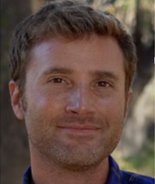A deadly secret lurks within our spice racks, medicine cabinets, backyard gardens, and private stashes. Scratch beneath the surface of a red pepper flake, a poppy seed, a magic mushroom cap, or an apple seed, and we find a bevy of strange chemicals. We use these to greet our days (caffeine), cure our infections (penicillin), calm our nerves (CBD), and even kill our enemies (cyanide). But why do plants and fungi produce such chemicals? And how did we come to use and abuse some of them? Based on cutting-edge research, MOST DELICIOUS POISON: The Story of Nature's Toxins—From Spices to Vices by Noah Whiteman (October 24, 2023; Hardcover) reveals the origins of toxins produced by plants, mushrooms, microbes, and even some animals, the mechanisms that animals evolved to overcome them, and how a co-evolutionary arms race made its way into the human experience, forever changing the trajectory of humanity. This perpetual chemical war not only drove the diversification of life on Earth but is also intimately tied to our own successes and failures as individuals and as a species. You will never look at a houseplant, mushroom, fruit, vegetable, or even human history, the same way again. Among other topics, the following surprising phenomena are discussed:
• Pain – caused by toxins – activates a circuit deep in our brains, subsequently creating feelings of pleasure and generating a feedback loop associated with addiction.
• Endorphins are opioids made in the brains of all animals, including our own. These opioids evolved to alleviate pain and are triggered by spices like black pepper and wasabi.
• Many toxins mimic our own hormones and neurotransmitters. These include caffeine, cardiac glycosides, opioids, psilocybin, and THC, which bind to receptors needed to run our brains and hearts, twisting a molecular logic born into our animal ancestors 500 million years ago.
• Nature’s toxins did not evolve with us in mind at all – plants, fungi, and microbes compete to evolve the next best defense, which their animal enemies eventually overcome and may co-opt as weapons.
As deadly fungi make national headlines, our current reality eerily resembles a sci-fi movie in which evolutionary biologists like Noah Whiteman are essential in demystifying the unknown and revealing the origins, mechanisms, and nature of toxins. Furthermore, the sensational reaction to The Last of Us and books like Entangled Life, I Contain Multitudes, and Wicked Plants demonstrate a strong curiosity and appetite for tales about hidden (and sometimes gruesome) aspects of the natural world, and how they shape the human condition.
Previously featured in The New York Times, Nature, Science, Scientific American, and Popular Science, Noah Whiteman received a Guggenheim Fellowship in 2020 to write this book. In his own words, “In my mind, I am scientist, colleague, brother, son, uncle, husband, and friend first. But I am also a gay, first-generation college student with rural, rust-belt roots. To my knowledge, I was the first out LGBTQIA+ tenured faculty member in my department at the University of Arizona and the same is true now at the University of California, Berkeley, in Integrative Biology.”
https://www.mostdeliciouspoison.com/
